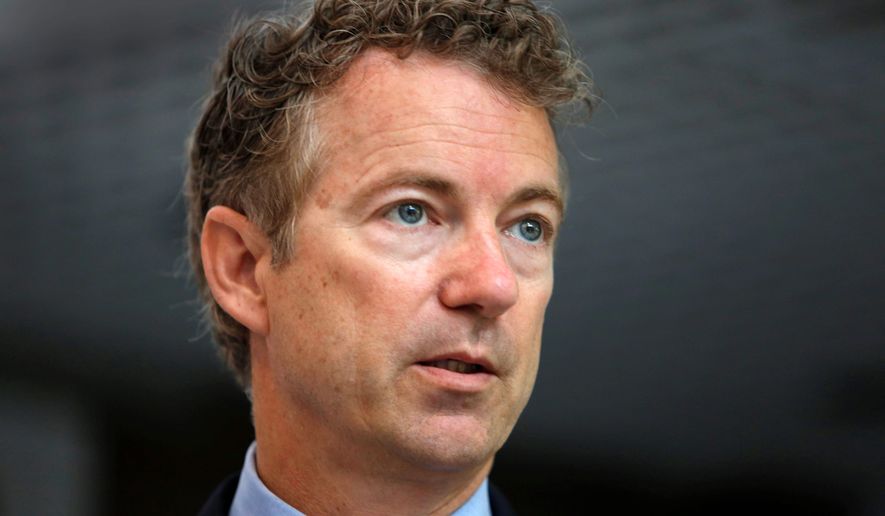Most Republican 2016 presidential contenders say they support arming Kurdish fighters in the campaign against the Islamic State, marking a clear departure from President Obama’s current foreign strategy and a welcome game plan among military analysts, who say arming the Kurds is a must-do to defeat the terror organization.
The Kurdish peshmerga is already a competent fighting force ready and willing to fight the Islamic State, also known as ISIS, but often lacking the arms to do so, said Richard Brennan, a senior political scientist at RAND Corp.
Arming the Kurds would not only give Iraqi Security Forces more help in the fight against the Islamic State, but also avoid sectarian conflicts that arise when the majority-Shiite Iraqi forces must fight in Sunni areas like Anbar province, where troops are preparing to retake Ramadi, he said.
“It definitely would be a positive step,” Mr. Brennan said. “Many of them want to fight against ISIS, but they don’t have arms and equipment.”
But the Obama administration has said it will only provide assistance to the Shiite Iraqi central government. The Iraqi central government then doles out the weapons as it sees fit. After pursuing this strategy for more than a decade, some analysts say that if President Obama starts unilaterally arming the Kurds, it would undermine his message that he has faith in the leadership abilities of the Iraqis.
Indeed, even after the fall of Ramadi, where Iraqi forces were run out of the city by Islamic militants after an unexpected routing last month, the White House reaffirmed its strategy of supporting the Iraqi government through airstrikes and military training — but no U.S. boots on the ground or directly arming additional soldiers like the Kurds.
“We believe this policy remains the most effective way to support the Counter-ISIL Coalition efforts to combat ISIL and maintain a unified, federal, pluralistic and democratic state of Iraq, as envisioned in the Iraqi constitution,” said Cmdr. Elissa Smith, a Pentagon spokeswoman, in a statement.
But Republican 2016 presidential contenders are ready to break with that strategy.
Even Sen. Rand Paul, a dove among GOP hawks, said he supports helping the Kurds.
“I think the only way this battle is won, ultimately, is with troops on the ground, but they need to be Arab troops,” the Kentucky Republican said during a February interview on Fox’s “America’s Newsroom.” “The Kurds are the best fighters over there, [and] I think we really need to incorporate them.”
Other 2016 candidates who have formally announced they are running for the high office — such as Florida Sen. Marco Rubio, Texas Sen. Ted Cruz, former New York Gov. George Pataki and business executive Carly Fiorina — have stressed the need to work more collaboratively with allies in the region such as the Kurds, as well as the Jordanians, Turks and Egyptians.
“There are a whole set of things we’ve been asked to do by our allies who know this is their fight. And we’re not doing any of them,” Ms. Fiorina told MSNBC’s Andrea Mitchell last week. “So I would hold summit and talk with them about that.”
Arming the Kurds does pose some risks, like giving rise to another sectarian conflict, but pressure does need to be put on the central Iraqi government to incorporate both the Kurdish peshmerga and the Sunni militias in their fight against the Islamic State and to not treat them as inferiors.
“There are legitimate concerns of how you do this, but at the head of it is the fact that the U.S. needs to be willing to put serious pressure on the central government to provide arms and munitions to both the peshmerga and the Sunnis,” Mr. Brennan said. “At the end of the day, the Shia-led government of Iraq is unwilling to let the peshmerga and Sunni tribes fight as equals against ISIS.”
Some Republican presidential hopefuls, including Sen. Lindsey Graham of South Carolina, who announced his candidacy on Monday, former Sen. Rick Santorum, Ben Carson, a retired neurosurgeon, Mr. Pataki and Mr. Rubio have also supported the U.S. putting some boots on the ground in Iraq, even if the position is politically unpopular.
Recent polling has shown Americans are growing less supportive of sending U.S. troops to the fight against the Islamic State. Just 35 percent of likely voters support sending troops back to Iraq as part of an international coalition, according to a Rasmussen Reports poll released May 22. That’s down from a 52 percent support rate in early February.
However, Mr. Graham said that he would put an additional 10,000 U.S. service members on the ground in Iraq to combat radical Islamic terrorists. Mr. Santorum of Pennsylvania also supported an influx of that number during a speech in February at the Conservative Political Action Conference before he declared his candidacy.
“I’m afraid some Americans have grown tired of fighting them. I have some bad news to share with you,” Mr. Graham said in South Carolina when he announced he would run for president. “The radical Islamists are not tired of fighting you. In partnership with others, we must take the fight to them, building lines of defenses over there, so they can’t come here.”
• Jacqueline Klimas can be reached at jklimas@washingtontimes.com.




Please read our comment policy before commenting.